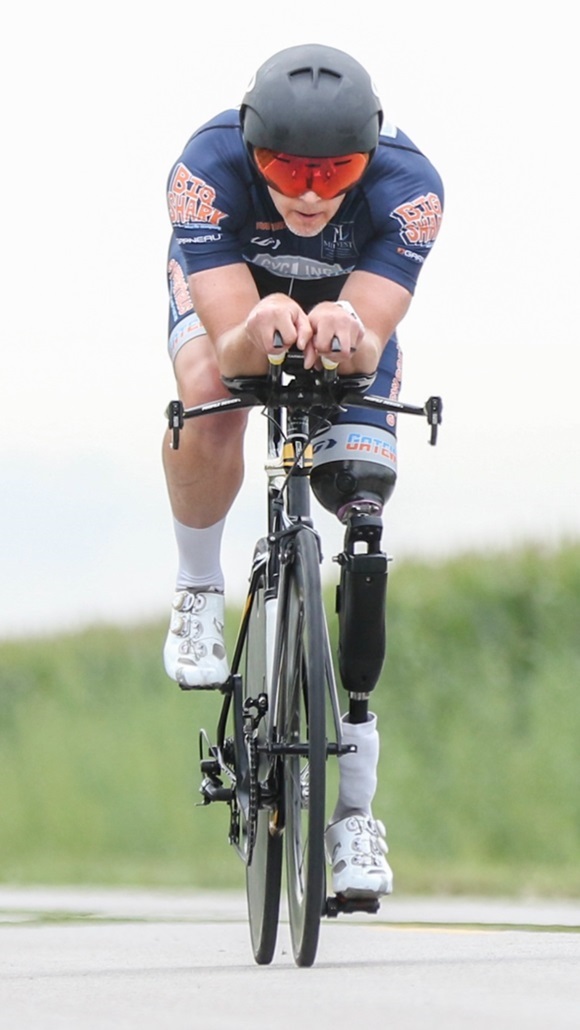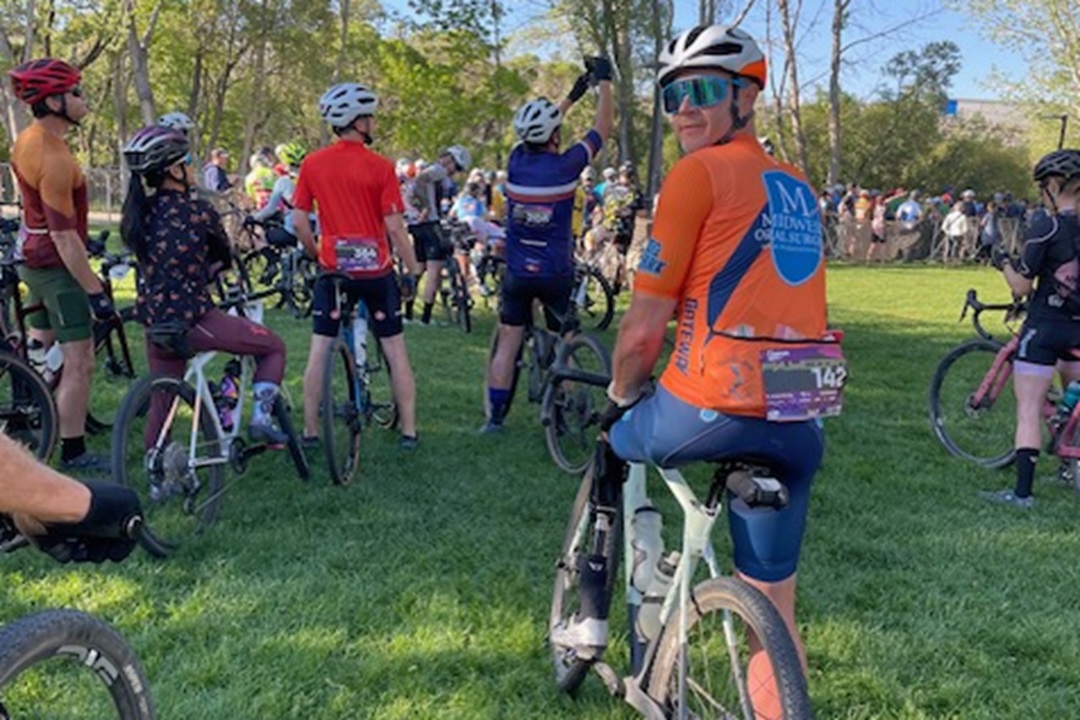Everyone loves a good comeback story, and local athlete Dave Cummings has one. Terrain readers may recall that the competitive cyclist suffered a devastating skateboarding injury in 2019 that resulted in numerous surgeries, followed by the difficult decision to have his left leg amputated above the knee (see our November/December 2021 issue).
While many in his position would have given up on being active, Cummings did not. His ultra-competitive nature and love of cycling drove him to seek out the best technology in prosthetics (he was part of a bionic limb study at MIT) and get moving again. With one prosthetic leg for cycling, a second for running, and a third for daily use, Cummings is back on the race circuit. He’s also giving back to the community, hoping to inspire others who struggle with injury or disability.
In the past year, Cummings has competed in three major competitions. He finished first among all disabled athletes at the grueling Stetina’s Paydirt gravel bike race in the mountains of Nevada, climbing 3,561 vertical feet over the 56-mile course. He competed in the men’s 50-54 category and was a member of a disabled-athlete team through High Fives Foundation, which supports adaptive sports.
Also, Cummings took second place at last year’s Missouri State Time Trial Championship in the men’s masters 50-54 category, and he competed in the Para-Cycling World Qualifier Time Trial in Wisconsin in 2023, earning second place in the Class 3 category.

Dave Cummings continues to place on podiums at elite cycling competitions. (Courtesy of Dave Cummings)
Prior to his accident, Cummings was an elite cyclist and skateboarder who competed across the Midwest. He won a race at the Gateway Cup in 2010 and numerous races in other cities.
At this year’s Gateway Cup over Labor Day weekend, Cummings will be a spokesperson for Ride to Unite, an event to raise awareness of riding with disabilities. Hosted by Cycle St. Louis Partners, the ride has numerous sponsors, including Terrain.
“I got involved with Ride to Unite because, as a person with a new disability, I was in a unique position to help promote the importance of cycling for people of all ages,” Cummings says.
Cummings will also lead a day-long “Pedal in Place” event next to the racecourse to raise money for Parkinson’s disease. The connection? Research suggests that cycling can help reduce symptoms of Parkinson’s.
Cummings is also a sponsored athlete for Big Shark Bicycle Company, and the shop recently brought him in to meet a young boy who had his lower leg amputated due to cancer. Several people donated funds for a bike for the child, but at the meet-up, the boy was hesitant about getting on it. He had never ridden a bike before.
When he saw Cummings’ prosthetic leg, the boy’s eyes lit up. The two were introduced, and Cummings shared his story with the family, telling how he had to relearn to walk and ride a bike.
Cummings looks forward to the day he can get his own “bionic” limb. As a participant in the MIT trial, he experienced a new amputation technique that preserves signaling between the muscles and the brain. Within the next five to 10 years, MIT says that bionic prosthetics will be commercially available to amputees through a surgical procedure, allowing them to walk, run, and cycle much more naturally.
Beware, cyclists. At that point, Cummings will probably finish on even more podiums.
Author: Terri Waters is a frequent contributor to Terrain.
Top image: Courtesy of Dave Cummings.


Leave A Comment